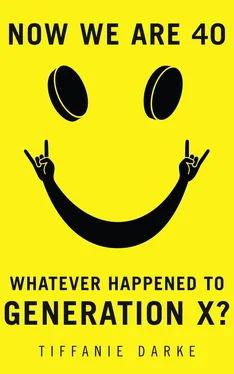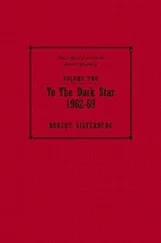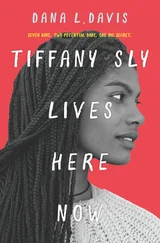It reached its apotheosis in that May of 1992 as the police looked on at the ravers, crusties and their dogs bouncing around on the top of Castlemorton Common. All the sound systems amassed together that week – Spiral Tribe, Bedlam, Circus Warp and DiY. Me too, although my memory is, funnily enough, patchy. I do remember the generator running out of power at one point and some dreadlocked dudes doing a whip round with a bucket. Some time later I saw the same dudes chasing a guy down the hill before beating him up viciously with fists and sticks. I think he had tried to nick the bucket of money. That bit definitely wasn’t beautiful.
The public–police stand-off at Castlemorton provoked the Criminal Justice Bill – in particular Section 63, which banned ‘sounds wholly or predominantly characterised by the emission of a succession of repetitive beats’. This lit up the music industry. The band Autechre released a three-track EP labelled ‘Warning: “Lost” and “Djarum” contain repetitive beats’. Orbital released a mix of its track ‘Are We Here?’ that it titled ‘Criminal Justice Bill?’ and which consisted of four minutes of silence. The Prodigy included a track ‘Their Law’ on their album Music for a Jilted Generation , which was introduced in the sleeve notes with: ‘How can the government stop young people having a good time? Fight this bollocks.’ Meanwhile Dreadzone released the single ‘Fight the Power’, which sampled Noam Chomsky urging people to think about ‘taking control of your lives’, and advocating political resistance. The ruling party was as culturally divorced from its youth as it was possible to be.
The bill didn’t just target ravers – the legislation also attacked hunt saboteurs, squatters and football fans. Essentially it amounted to a judgement on people’s lifestyles – which enraged us. It repealed the councils’ duty to provide permanent sites for travellers; police would have new powers of stop and search; the right to silence would be affected; and the criminalisation of ‘disruptive trespass’ had consequences for squatters, travellers and protesters alike. Uniting in protest, formerly unrelated movements began to come together in coalitions: students, trade unions, sound systems, traveller communities and direct action groups.
Three marches were planned in central London, the first two of which passed peacefully, with Tony Benn standing on a box in Trafalgar Square. Raves in London squats and on Wanstead Common took them into the night. The third ended in a riot. Tear gas was deployed, civilians were beaten up by police, dogs died, and any impression the groups had given the establishment that they were a civilised bunch with a civilised point of view was seriously damaged.
Once the bill came into effect, the free party scene withered. Instead, the right to party went overground and became a thriving industry. Nightclubs, DJs and festivals were the ultimate winners. Festivals still loosely embed political and socially conscious messaging into their line-ups, in a nod to the DNA of the scene that birthed them, but actually they are more about having fun and taking a break from normal life than raging against the machine. Your alternative lifestyle in one three-day £150 ticket. Sponsored by Vodafone. If you go to a festival now you are part of an entertainment culture, with nice bathroom facilities, wrist bands, glamping and fancy cocktails. It’s a long way from those crusty sound systems and cans of Strongbow. Those sound systems headed into Europe, making way for Paul Oakenfold, Carl Cox and their progeny – Calvin Harris, David Guetta, Tiesto – to embrace a life of money and fame.
Ibiza went on to flourish. Surviving the scandal of Ibiza Uncovered , the television series that exposed the messy ‘Brits on tour’ years, it has remained a hedonist’s destination. It continues to supply a 24/7 smorgasbord of distraction, and when the low-cost airlines opened it up to weekend clubbers, no one ever caught their flight home. It was like a super, sunny, brown-limbed version of Castlemorton, with glamour, glitter and sand.
These days Ibiza is mostly off limits except to the super rich. It has risen above the raving riff-raff by hiking prices, and much of the partying takes places in expensively built private villas rather than the clubs. Many who built and bought those villas passed through the raving nineties – Ibiza’s hippie values and dance music culture suit their millions very well, even if they have built their own private nightclubs underneath their tennis courts. They no longer smile at strangers as the sun comes up, but at each other on board a yacht back from Formentera where they have just blown a grand on a rosé-soaked lunch at the see-and-be-seen beachside restaurant.
For the rest of us, there is ‘glamping’. Evolving the notion of abandoning yourself to the countryside for a night of hedonism, Generation X has consciously curated the experience – applying all the signifiers of cool to the original idea of striking out and leaving societies and communities behind. Being out in the open, ignoring the rules around night and day, creating your own environment to suit you, somehow morphed into £400 bell tents and Cath Kidston bunting. ‘Wild’ camping converged with the ‘free’ party experience, and we styled it up with duvets, double-lilo blow-up beds, tealight chandeliers and yurt hotels to make it as luxurious as possible. If your urban experience traps you Monday to Friday, you can load up the car on a Friday night and head off with your mates (and kids) for a weekend of (relatively) comfortable escape. Someone can always bring a sound system.
Some of the activist momentum was retained, however. ‘I remember being in Shepherd’s Bush when Reclaim the Streets took over the roundabout,’ says Martha Lane Fox. ‘Which I guess was to do with politics loosely, but it might just have been a massive rave. I’m not sure we had a sense of social purpose. We didn’t want to change the health service or change governments. We were just like, Fuck Thatcher, here’s a new way of being.’ However anti-establishment and vaguely political the movement felt, it was more a feeling that we were different from the world we had been born into, and that we were going to express ourselves differently. ‘We were culturally ambitious, but not politically,’ says Martha. ‘We went because it was a laugh, not because everyone was really up in arms.’
The Criminal Justice Bill succeeded then – despite the protest. It forced music and dance culture to be legalised, regulated and commodified, so it could be moderated and taxed. But it didn’t kill the music. Far from it – the Nineties were a period of incredible musical creativity, producing wave after wave of new music culture, from rave to Britpop to house to trip hop, to acid jazz to trance and drum ’n’ bass.
Much of that was to do with the growing multiculturalism of British society, and all the glorious influences that brought with it, in music, politics, fashion and community. Britain’s second generation of immigrant culture was just coming of age, and the social take of what those kids were offering up was absolutely the height of cool. As June Sarpong, a Ghanaian who grew up in Walthamstow, says, ‘Being in London during that time was so interesting. We were immigrants who had grown up and integrated with white people in a way that our parents just hadn’t. I was hanging out with Jazzie B and the Soul II Soul crowd at that time, and I found myself at the heart of this shift in the thinking of the city, the birth of a culture.’
Second-generation immigration culture was nowhere near the ruling elite economically or politically – but culturally they were absolutely centre. Economically, there was displacement, and violence and drugs. ‘I had a terrible car accident in 1989 that took me out of action for two years,’ says June. ‘I was hospitalised, stuck in a bed unable to move. Those big, formative teenage years were wiped out. All my friends grew up in social housing, they were doing drugs and getting wasted, things you do at that age. The accident was like a crazy intervention from the universe because I missed out on all of that. That’s the reason I don’t drink, or smoke, or do anything now, not because I’m judgmental but because the time I would’ve started I was ill. By the time I got better, I’d spent a lot of time on my own thinking in a way that would keep me from going mad. I had had to grow up.’
Читать дальше












